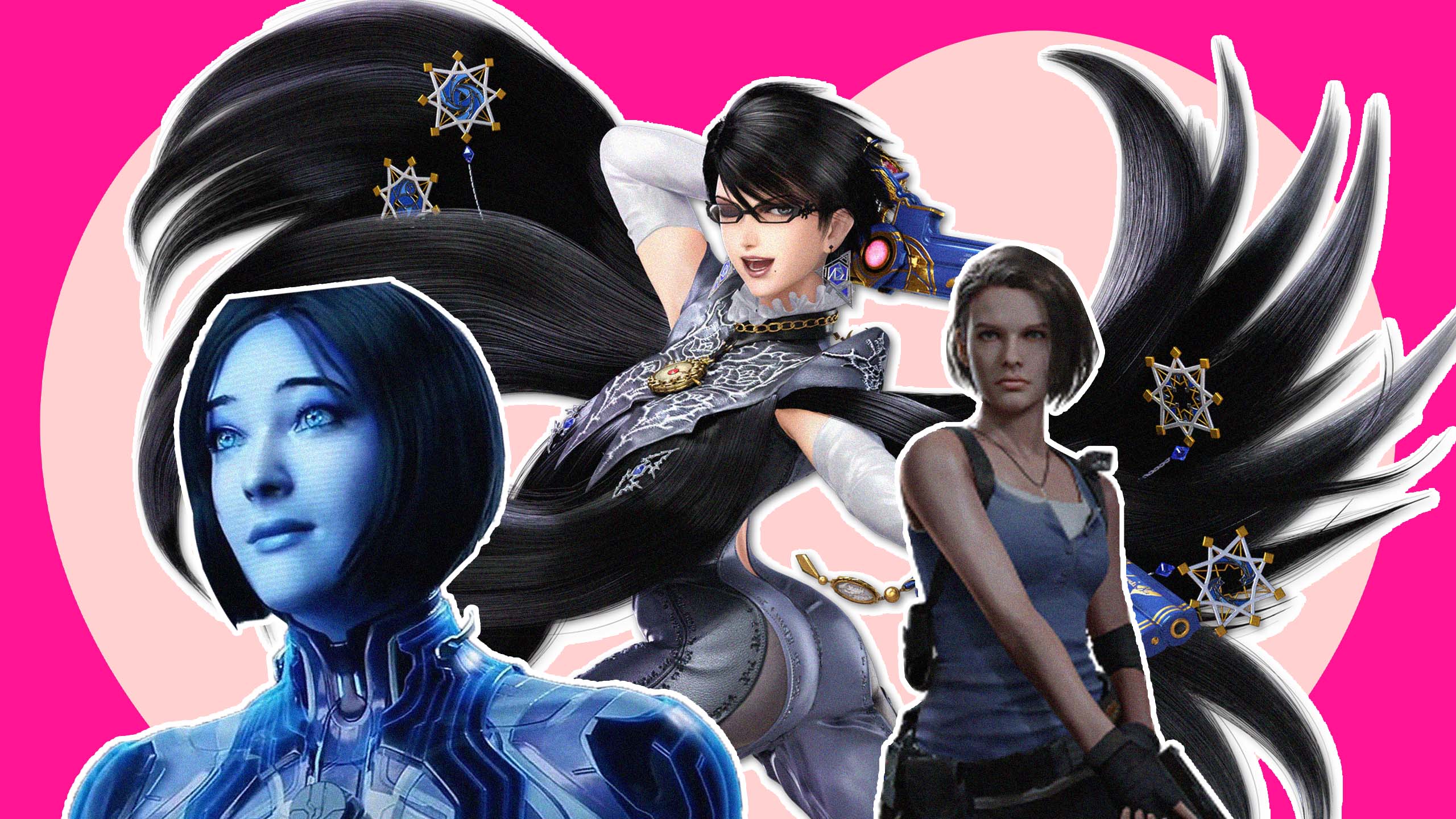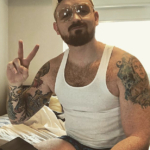As kids, my friends and I often sat in a semicircle around the Nintendo 64. My eyes would always rapidly scan the screen for the woman in a video game’s character select menu. Friends would inquire as to why I always chose “the girl,” and I’d anxiously retort that their abilities best matched my playing style. Of course, I was being a bold-faced liar. Choosing “the girl” was simply my way of coping. As a gay man, selecting the less commonly picked (and often underestimated) character among the crowded roster of aggressively heterosexual men felt more authentic; an experience I could relate to.
In 1996, one particular leading lady in gaming forever stole my heart: Jill Valentine. The Special Operations Agent of the Bioterrorism Security Assessment Alliance (say that three times fast) made her debut in the original Resident Evil game, as one of two playable characters. Her counterpart, Chris Redfield, had all the complexity of a saltine cracker. But Jill was unique. Admittedly, only in the sense that she was a woman. Still, she seemed a more enticing fantasy to explore.
The game (which heavily featured zombies, monsters and other flammable nightmare fuel) scared me to the core, but I felt more courageous and confident exploring the horrors of the Spencer mansion as Jill. I figure it’s because, in my day-to-day life, women felt more relatable, and made me feel more comfortable; whether as friends, teachers—or bioterrorist agents. In the real world, women generally supported me for my eccentricities, whereas men teased me. Choosing Jill also raised the game’s stakes as I felt more connected, and desperately wanted to keep her alive.
For me, Jill’s role in the game played into the horror genre’s “final girl” trope (when the female protagonist outlives all others and is often left to confront the killer), which I always adored, and—for some strange and possibly twisted reason—fantasized about. There was always something about women prevailing over men that I appreciated, since women and gay men are often underestimated when challenged physically. Watching a woman prevail was always a “you go, girl!” moment for me, and I always wanted to feel that validation for myself. The game also felt much more interesting (and rare) being told from a woman’s perspective.
At no point in the game does Jill’s gender hinder her or play into stereotypes. While many video games may make the female character quicker and weaker compared to men, Jill was just as physically and mentally capable as Chris. Fortunately for me, Jill has appeared in numerous Resident Evil titles since her debut, and has even been a playable character in other popular gaming franchises (including Fortnite and Dead by Daylight). I’m thankful for that and will happily shell out the cash for any opportunity to be in her company. It’s like reuniting with an old friend.
Like me, Jeff Brutlag, a writer and popular Twitch streamer has found themself drawn to female characters in games. Brutlag is most enamoured of Nintendo’s Umbra Witch, Bayonetta. “She does everything so stylishly, and she’s witty in a way that leaves men speechless. She has an allure I always dreamed of having,” they explain. “She’s also incredibly powerful, being both feminine and overtly sexual, which feels like a huge ‘fuck you’ to the patriarchy.”
Bayonetta and other feminine-presenting characters informed much of Brutlag’s non-binary identity—as a kid, they explored their gender through the fantasy genre. The Fire Emblem series (which has become explicitly more queer in recent years) carries particular influence. “I always pictured myself being the beautiful dancers or spellcasters that may have looked dainty and frail, but with just a quick few words of an incantation, the big burly men would be up in flames,” they say. “It let me see that masculinity was, by no means, the only way to be strong and capable.”
“I will very rarely play a video game where a female lead is not an option. I’m just not interested.”
In gaming, the typical male dominance of playable characters was something that individuals like Brutlag could never identify with, which made it harder for them to feel immersed in that world. I still feel that way today: truth be told, I will very rarely play a video game where a female lead is not an option. I’m just not interested.
Like Brutlag and me, Sofia Perez, a 26-year-old web developer, found that video games allowed her to explore her sexuality and gender identity while alone and in a safe space. Perez, a trans woman, used gaming to explore the life she longed for, using video games’ customizable character options, to choose the body type, hair, clothing, names and pronouns she dreamed of having in the real world.
“It allowed me to experiment with different aspects of my identity without the fear of judgment or rejection,” Perez says. “Gaming helped me develop the confidence to come out as trans to my family and friends.”
The character that carried particular influence for Perez was Cortana, the striking AI construct from the Halo series. “She is strong, beautiful, independent and capable of taking care of herself,” Perez explains. “I also appreciate that she is not defined by her relationship with the male protagonist, Master Chief. Instead, she is her own person with her own goals and objectives.”
For Perez, playing online as a female character also provided an escape from transphobia and discrimination. Coming out as trans to her loved ones in real life had the potential to lead to painful rejection. “But if I told a random anonymous gamer online that I was trans, it’s not as big of a deal because they don’t know who I am and I will never see them again. This aspect helped me open up about my identity with others online.”
When Perez would share her gender identity while gaming, her peers were remarkably accepting. It gave her the courage to tell people in her real life. “Without the anonymity of gaming, I might never have had the opportunity to explore my trans identity in a safe and low-risk environment,” she says.
Gaming, of course, is not perfect: plots are still plagued by heteronormativity, and queer characters and relationships are still relatively scarce. Admittedly, progress is being made. For example: this year, The Sims 4 introduced customizable non-binary pronouns, and Apex Legends, a popular online battle royale, features a cast where six of the 17 characters are openly gay or bisexual, and 50 percent are non-white. However, a recent analysis of the bestselling video games from 2017 to 2022 shows we still have a long way to go. Results revealed that 80 percent of the main characters in video games are male, and 54 percent are white.
For many queer and trans players, female characters remain our window into another world, letting us feel desired and experience relationships, love and affection from men, while exploring the nuances of feminine desire from the male gaze. These experiences often occur when we were our most curious and perhaps most scared of our sexuality. Only these women know our secret.
“I remember playing mini-games in the original God of War so that Kratos could have sex with whichever woman was beckoning him and thinking: ‘I wish that was me,’” Brutlag says. “Looking back, those roles were dated and reductive, but for a gay kid coming into their sexuality, it was incredibly formative.”
In a world that suppresses our community’s growth and condemns our desires, gaming is a place we can finally be ourselves. By choosing to play as these women, we come into our identities in a small way, flirting with gender and sexual identity from a distance in a context that is just as safe as it is empowering. It’s been an honour learning through them.


 Why you can trust Xtra
Why you can trust Xtra


